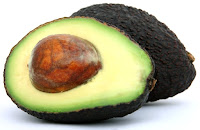During your baby's first 6 months, breast
milk is the only food item that will be provided to your baby. During that
time, the infant receives all the nutritional needs he needs from breast milk.
Also, even after the baby has started having solid foods, breast milk supplies
a certain portion of the baby's nutritional needs. Therefore, if you are a breast-feeding
mother, it is very important to have nutritious food while you breastfeed your
baby. Having nutritious foods is important not only to produce nutritious breast milk
for the infant but also to nourish yourself back to health.
If you do not take adequate amount
of nutrients while breastfeeding, the quality and quantity of breast milk you
produce will also change accordingly. This is why it is so important to have a
nutritious diet during pregnancy and breastfeeding. You need to have a well-balanced
diet because it determines the energy, protein, vitamin and nutrient content of
your breast milk.
So, let's look at the key nutrients
that should be included in the diet of a breastfeeding mother in order to produce
quality breast milk with the right nutritional value.
Calcium
Did you know that a breastfeeding
mother may lose some of her bone mass (up to 3-5%) due to continuous breastfeeding
during the first six months of her baby? Why does this happen? This is because
the newborn baby needs a considerable amount of calcium for his teeth and bones
development and therefore, absorbs the required amount of calcium from the
mother's bones.
So now you know that Calcium is one
of the most important nutrients to be included in a breastfeeding mother's diet.
Adequate calcium intake can not only help the mother to produce nutritious milk
but also protects the mother from medical conditions like osteoporosis which
are caused by calcium deficiency. A breastfeeding mother should consume 1000 mg
of calcium per day to ensure that the mother's and baby's calcium needs are
properly met.
Small fish (anchovies, shrimp, salaya,
herring)
Low fat dairy products (fresh milk,
curd, yogurt, cheese)
Dark green vegetables and leaves
(broccoli, kathurumurunga leaves, mukununenna leaves, murunga
leaves, curry leaves)
Fruits rich in calcium (wood apple)
Almonds
Iron
When pregnant women lose
considerable amount of blood during childbirth, they become tired and weak as a
result of anemic. Therefore, it is essential for those mothers to have some
nutrients to recover from the anemic condition and get back their healthy after
childbirth. Iron is an essential nutrient which is a mineral that contributes
to the production of new blood cells. Therefore, it is important for mothers to
include iron-rich food in their diet after childbirth.
Iron is one of the essential
minerals of course, but having too much iron can cause certain side effects,
such as constipation. Therefore, it is best to take natural iron-rich foods as
a daily supplement rather than trying to get iron through medicines. For a
breastfeeding mother, recommended daily intake of iron is 9 mg.
Red meat (beef, pork, mutton)
Egg yolk
Dry fruits
Dark green leaves (sarana
leaves, gotukola leaves, mukununenna leaves, kathurumunga
leaves)
Fish (avoid high-mercury fish)
Vitamins
Breastfeeding mothers need to supplement
their diet with plenty of vitamins. Vitamins C, D, and B12 are the most
important ones for breastfeeding mothers.
Vitamin C helps your body to absorb
more iron from your diet. If a nursing mother takes adequate amount of Vitamin
C food, the infant will also get Vitamin C through breast milk. Vitamin C is an
essential nutrient for infants which helps in the development of the infants’
bones and immune system.
Vitamin D helps to strengthen the
bones of mothers who are tired and somewhat weak after childbirth. Vitamin D
supplementation infants gets through breast milk helps in the development of infants’
bones and cartilage.
Furthermore, Vitamin B12
supplementation infants gets through breast milk helps to produce new cells and
develop the nervous system.
Nelli, guava, star fruit, lime,
oranges, weralu, murunga leaves, gotukola, water spinach, tomato
Foods rich in Vitamin D:
Oily fish (i.e. salmon), milk,
eggs, sunlight also produces Vitamin D in the body
Foods rich in Vitamin B12:
Meat, fish, milk, eggs, yogurt
Dietary Fibre
Fresh vegetables and fruits are rich
in dietary fibre and also contain nutrients such as iron, calcium and vitamins.
Adding more fibre-rich food to the diet of a lactating mother helps to prevent
constipation, as well as improve the immunity of the mother after childbirth.
Whole Grains (brown rice,
finger millet, Corn)
Fresh Vegetables (bitter gourd, lasia,
baby jack-fruit, ridge gourd, tomato)
Fresh fruits (wood apple, guava, beli,
banana, passion fruit)
Fresh leaves (spinach)
sweet potato
Folic Acid
Recommended daily intake of folic
acid for a breastfeeding mother is about 500 micro grams. When the mother takes
necessary amount of folic acid, infant will also get this nutrient through breast
milk. Folic acid is a type of B vitamin and is a constituent of red blood cell
growth and brain development in infants. Therefore, it is very important for
the infant to get folic acid through breast milk during the early stages of
infancy.
Brown rice
Avocado
Legumes (cow-pea, green gram, lentils,
chickpeas, dried peas)
Nuts (flax seeds, walnuts)
Asparagus
If you are a nursing mother, I hope you will be interested in this article and adding the nutrients listed in this article to your diet.
Images: PublicDomainPictures from Pixabay (https://pixabay.com/)








No comments:
Post a Comment